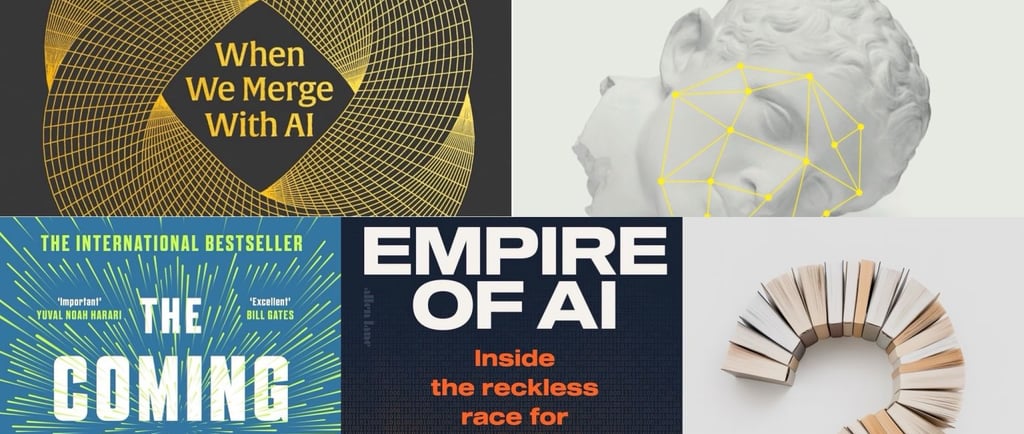Summer 2025 Reading List
7/30/20252 min read


While much of the current AI discourse is centered around model performance, breakthroughs in engineering, and scaling capabilities, I find myself increasingly drawn to the broader, more consequential questions. What does AI mean for our societies, institutions, and shared futures? What power structures are being reinforced or disrupted? And how do we govern technologies that are rapidly outpacing our ability to understand them?
My summer reading list reflects this shift—from code to consequences.
🔹 The Singularity Is Near by Ray Kurzweil
In this seminal work, Kurzweil outlines his vision of exponential technological growth, forecasting a future where humans and machines merge. He explores the potential of AI, nanotechnology, and biotechnology to transform human existence—ushering in an era where mortality, cognition, and creativity are redefined. This book is not merely a prediction, but a provocation: What happens when intelligence becomes unbounded?
🔹 Human Compatible by Stuart Russell
Russell’s book is a cornerstone in the AI alignment debate. Rather than seeing intelligent machines as tools to be programmed, he argues for systems that remain inherently uncertain about human goals—thus incentivized to learn and cooperate rather than dominate. It’s a clear, urgent articulation of how AI can remain beneficial, even as it grows more capable. A must-read for those interested in safety, ethics, and control.
🔹 The Coming Wave by Mustafa Suleyman
Suleyman draws from his deep experience in the AI industry to examine what happens when two powerful technologies—artificial intelligence and synthetic biology—collide with geopolitics, profit motives, and regulatory gaps. His argument is sobering: the next decade will be shaped not just by innovation, but by how (and whether) we govern it. This is a powerful read for anyone tracking the global stakes of technological progress.
🔹 Empire of AI by Karen Hao
Karen Hao offers an unflinching look at the global AI industry—from elite boardrooms to underpaid data workers. She maps how idealism and open science gave way to closed models, secretive governance, and extractive labor. The book reveals the contradictions behind AI’s rise: innovation built on invisible workers, progress shadowed by opacity, and narratives dominated by a few powerful actors. It’s a reminder that who builds AI—and how—matters deeply.
Arash Hajikhani, PhD
Showcasing my academic profile and projects and blogpost series
contact
Blogpost Subscription
© 2024. All rights reserved.
